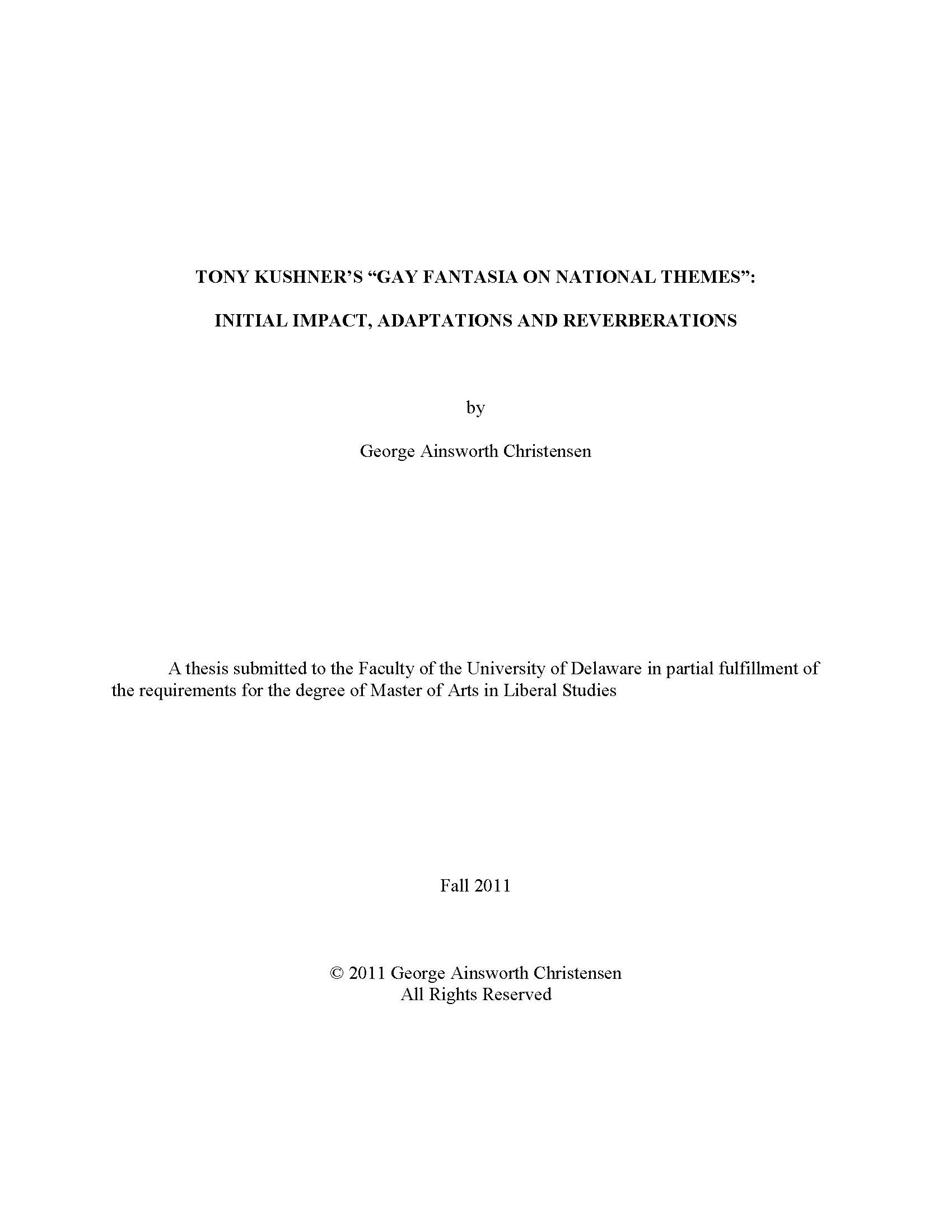Resum
This thesis examines the text of Tony Kushner's monumental play, "Angels in America," and identifies major themes, concepts and characters as they personally resonated with the author, a formerly married, closeted, contemporary American homosexual. After the script of the play is analyzed in considerable detail, a line-by-line comparison to the recorded HBO-Films version of "Angels in America" is discussed with emphasis on the changes, if any, that were introduced by the adaptation from stage to film. It is shown that very little alteration was required to accommodate Kushner's original construct for the television production. Kushner’s published theatrical script is then compared, again line-by-line, to the published libretto and a video recording of the world premiere performance of "Angels in America," an opera by Hungarian composer Péter Eötvös and his wife, librettist Mari Mezei. This adaptation requires substantial changes to, and deletions from, the theatrical script. The thesis them examines the impact of the changes and deletions made for the opera to those major themes, concepts and characters that originally attracted the author to this material when presented on the theatrical stage. The author’s conclusion is that the opera, while interesting and of considerable artistic value in its own right, is very different from the original theatrical version. The Eötvös/Mezei opera shifts primary focus onto two characters, Prior Walter and Harper Pitt, and away from their partners, Louis Ironson and Joe Pitt; the roles of Roy Cohn and Belize are substantially reduced, and the role of Hannah is marginalized. The opera does emphasize the fantasy elements of the play, as represented by The Angel, who is given relatively more to sing than most other major characters in the opera; the play’s left-leaning, anti-Reagan political content is largely eliminated, as is most of Kushner’s campy, brittle, bitchy, Queer humor. Learning to live in contemporary America as an openly gay man in the workplace, the neighborhood and, perhaps most difficult, inside my own head and heart was a lengthy, confusing and sometimes painful process. Kushner's words, especially his ideas and constructs as contained in "Angels in America," were a powerful element in the author's education, burgeoning self-awareness and somewhat belated self-acceptance. (Extraído del documento)



